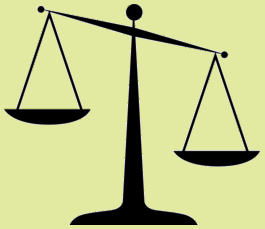 How we treat one another matters. You probably know this intellectually. But you can really feel the truth of this statement deep in your gut if you’ve ever suffered the agony of rejection or if you have ever suffered the humiliation of being regarded as a “lesser” person.
How we treat one another matters. You probably know this intellectually. But you can really feel the truth of this statement deep in your gut if you’ve ever suffered the agony of rejection or if you have ever suffered the humiliation of being regarded as a “lesser” person.
I recently[1] discussed the equal treatment of nonbelievers with Barry Lynn, executive director of Americans United for Separation of Church and State and J. Brent Walker, executive director of the Baptist Joint Committee for Religious Liberty. These gentlemen delivered joint lectures[2] and afterwards, during the discussion period, I challenged their stance on the legal status of nonbelievers.
The issue I brought up involved the Supreme Court case Holt v. Hobbs.[3] A Muslim prisoner in Arkansas wanted to grow a half-inch beard in accordance with his religious beliefs. The prison’s policy prohibited inmates from growing beards except in cases of medical necessity. The Supreme Court unanimously ruled that the prisoner could grow a beard.
Here’s the problem, as I see it. If an agnostic prisoner wished to grow a beard, he would be denied. It is only if the desire to grow a beard is motivated by some other-worldly commitment that the Court would grant the exception. As the legal scholar Marci A. Hamilton has observed, “Religious exemptions from generally applicable, neutral laws do not treat religious and non-religious reasons equally, because they only exempt the religious conduct…”[4]
This is, to my mind, unacceptable. Any special accommodation of religious behavior over nonreligious behavior is religious discrimination. Special accommodation amounts to the demotion of the legal status of nonbelievers.
I reminded Barry Lynn that his organization filed a friend-of-the-court brief in behalf of the Muslim man. In doing so, his organization implicitly condoned the elevation of religious beliefs over nonreligious beliefs. He grimaced, then proceeded to reiterate that the Court decision was 9-0, a fact which did not impress me.
Lynn explained that the Court understood that a clean-shaved Muslim was a Muslim who was genuinely hurt. I promptly suggested to Lynn that I could probably make a strong case that an agnostic or atheist publicly demoted to second class citizenship is liable to also feel genuinely hurt. Lynn smiled and nodded, as if to concede this point. He then suggested that he nonetheless supported the Court’s decision as an intermediate step along the way to complete justice.
Brent Walker was less amenable to my argument. He pointed out that the First Amendment speaks specifically of religion. The implication was that if I didn’t like the privileged status of religious people over nonreligious people, then I should take it up with the founding fathers.
I could have chosen to sit down and politely accept Walker’s answer, but that would have been out of character for me. Instead, I facetiously paraphrased his position along these lines, “So, it’s okay to carry our pursuit of justice to a certain level, a minimum level compatible with the text of the Constitution, and then to stop—rather than pursue justice to the highest possible ethical level compatible with the text of the Constitution?” He looked bewildered by my complaint. He insisted that he saw nothing wrong with the special recognition of religion-related rights in our system of laws.
And here, my friends, is where we confront the underlying problem. Throughout our society, even among smart, progressive people, there is an instinctive acquiescence in the face of inequality. We do not live in a secular society, only a partially secularized society. Religion has always been and still is legally favored. Nonbelievers are subjected to institutionalized discrimination. And many of the most prominent champions for equality are settling for less than complete equality.
I have long supported Americans United for Separation of Church and State by donating royalties from the sale of my book, Religion Refuted. Despite my occasional criticism, I want to make clear that I continue to support the organization. It does an enormous amount of good in the struggle for religious liberty. And Barry Lynn is probably correct in thinking that his approach is the most practical approach to expand religious liberty in the current cultural climate. The last thing I want to do is discourage people from contributing to Americans United. My point is simply this: We must never lose sight of the ultimate goal, which is to establish complete equality for everyone.
[1] March 9, 2016
[2] The lectures were held at the Hendersonville, NC, public library and were sponsored by the Western North Carolina chapter of Americans United for Separation of Church and State.
[3] Justice Alito delivered the Court’s unanimous opinion on January 20, 2015. Justice Ginsburg filed a concurring opinion, joined by Sotomayor, who also filed a concurring opinion.
[4] God vs. the Gavel: Religion and the Rule of Law (Cambridge University Press, NY, 2005), p. 294.

2 comments for “Champions of inequality”